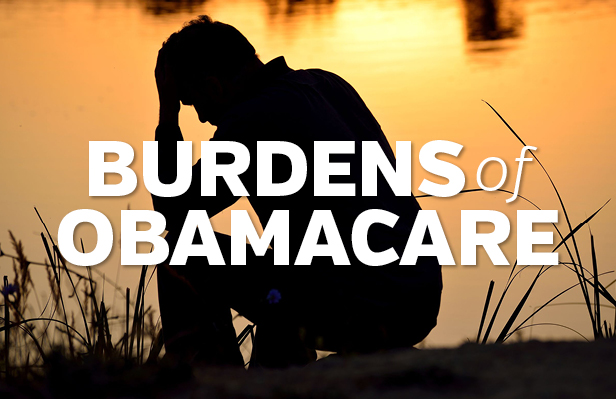Media

State-Run Health Exchanges: A Terrible Track Record
Governor Wolf is taking a big risk. His administration is preparing a Pennsylvania-operated Obamacare exchange if exchange subsidies from the federal exchange, or healthcare.gov, are ruled illegal by the U.S. Supreme Court in June.
State-run exchanges have a terrible track record. Of the 17 states opting to run their own exchanges, nearly half face financial trouble. Instead of enhancing competition and making health care more affordable, state exchanges have faced constant cost overruns and technological failures, leading to new taxes and restricted consumer choice.
In many cases, exchange costs are higher than anticipated—largely thanks to labor intensive call centers.
- Nevada spent $72 million for the initial set up of its exchange and an additional $57 million after new costs emerged.
- In Colorado, taxpayers are on the hook for a $21 million call center that was originally estimated to cost $13.6 million.
- Vermont plans to spend almost $200 million to set up its exchange in addition to an estimated $51.8 million in annual operation costs.
Despite cost overruns, some states were still unable to create a working exchange.
- In Oregon, state taxpayers paid nearly $50 million to set up an exchange that was ultimately abandoned. Oregon also received nearly $300 million in federal dollars. The website never enrolled a single person online before shutting its virtual doors in favor of the federal exchange.
- Similarly, Vermont spent $200 million in federal funds to set up an exchange with a faulty website that struggles to handle site traffic. Vermont currently has the fifth highest health premiums in the country.
- When Massachusetts launched it’s exchange, more than 300,000 residents had to be dumped into a temporary “free” Medicaid program without any income eligibility determination at an estimated cost of $1 billion.
As costs exceed projections, states have resorted to new methods to raise revenue.
- Washington D.C. raises $25 million of its $28 million budget for the exchange through “user fees,” which are taxes placed on consumers’ health plans.
- The state of Washington also assesses a tax on all health insurance premiums, and the state charges insurers a monthly fee for each exchange user.
- In Rhode Island, the state legislature is considering a proposal that would assess an additional $11.8 million in “surcharge” taxes.
Many providers are choosing not to participate in state-run exchanges because exchange plans offer lower reimbursement rates than private market plans. Insurers also fear that recipients in the exchange will not be able to continue paying premiums.
- As a result, consumers face limited choice and restricted competition from providers.
- Consumers in many states have as few as two choices for health insurance. The Wall Street Journal reports that many hospitals have merged as a result of the negative economic impact of Obamacare.
As state exchanges fail, four states—including Oregon and Nevada—opted to join the federal marketplace. In addition, Hawaii and Massachusetts are discussing a possible transition to federal control. But even the transition to healthcare.gov is expensive, costing around $20 million per state.
Given the poor track record of state exchanges, Pennsylvania should stay with healthcare.gov and urge Congress to replace Obamacare with reforms that work.